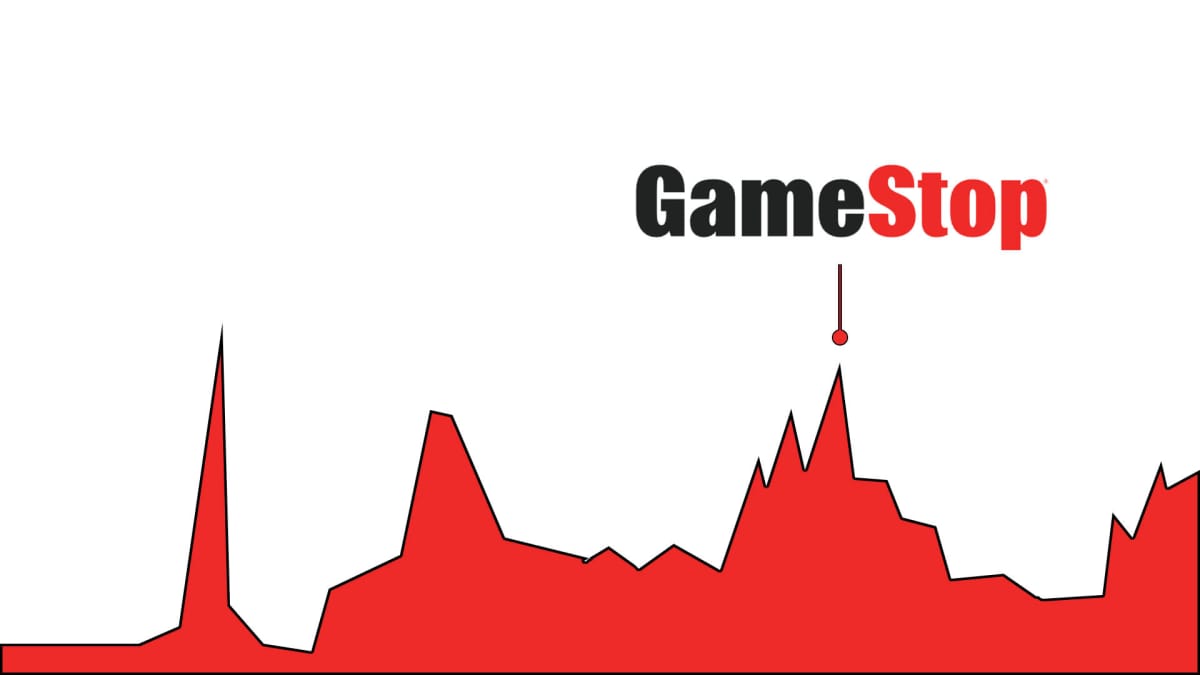A GameStop SEC report has been released, detailing the Securities and Exchange Commission's findings on the GameStop stock situation and other related securities over the last year.
As you're probably aware by now, GameStop stock rapidly increased in value in late 2020 and early 2021. The unusual amount of intense trading eventually attracted government attention and kicked off more lawsuits than an Ace Attorney game. The U.S. government's Securities and Exchange Commission began to investigate the issues surrounding GameStop stocks earlier this year; now, it's finally released a report on the situation.

What We Learned in the GameStop SEC Report
The key takeaway from the GameStop SEC report will likely be frustrating for those of you hoping for a massive bombshell -- many of the conclusions it reaches about GameStop stock and the wider market situation are fairly reserved.
Let's start with the GameStop stock itself -- the GameStop SEC report notes that trading volume and the value of the stock rapidly increased after a large number of investors began trading the stock.
Overall, GME’s intraday share price increased approximately 2,700% from its intraday low on January 8 to its intraday high on January 28, followed by a decrease of over 86% from that day to the closing price at the end of the first week of February. The daily closing price changes at the end of January were also highly volatile in dollar terms, ranging from a rise of $199.53 (between January 26 and 27) to a fall of $153.91 (between January 27 and January 28).
The increases coincided with a sharp increase in the number of individual accounts actively trading GME. As shown in Figure 4, below, by January 27, the number of unique accounts trading GME on a given day increased from less than 10,000 at the beginning of the month to nearly 900,000.
To put it into layman's terms -- a lot of investors suddenly became interesting in GameStop in January 2021, right around the time when the meme trading was at its heights.
The market volatility has continued since then, although things have settled down somewhat in recent months. Aside from issues with apps like Robinhood restricting retail trading, the issue of behind-the-scenes trading in what is known as "dark pools" was also cited in the GameStop SEC report.
Much of the retail order flow in GME was purchased by wholesalers and executed off exchange. Such trading interest is less visible to the wider market—and payments to broker-dealers may raise questions about the execution quality investors receive. Further, though wholesalers increasingly handle individual investor order flow, they face fewer requirements concerning their operational transparency and resiliency as compared to exchanges or ATSs.
Gamestop Stock Price Not Driven by Short Squeeze
Surprisingly, the report also reaches the conclusion that short-selling didn't have as large of an impact on the stock's price as one might have thought. While the early increases in price were certainly driven by short-sellers, the SEC was unable to find a convincing explanation for the wider increase in the stock's popularity and value.
Unfortunately, there's no big bombshell here or a promise of massive government reform to protect the little guy. The report ultimately reaches the conclusion that the regulations on trading could do with some improvement, but it doesn't mention any specific actions to remedy it just yet.
"The extreme volatility in meme stocks in January 2021 tested the capacity and resiliency of our securities markets in a way that few could have anticipated," read the report's conclusion. "At the same time, the trading in meme stocks during this time highlighted an important feature of United States securities markets in the 21st century: broad participation. There are many different types of investors, and they buy and sell stocks for many different reasons. However, when share prices change rapidly and brokerage firms suddenly suspend trading, investors may lose money."
You can read the full GameStop SEC report for all the fine details. The whole saga with GameStop stock is far from over, though, and we may still see the U.S. federal government take some kind of action to further regulate the market in the future.
What do you think of the situation with GameStop stock over the last year? Do you think the government will improve regulations in trading? Let us know in the comments below!






